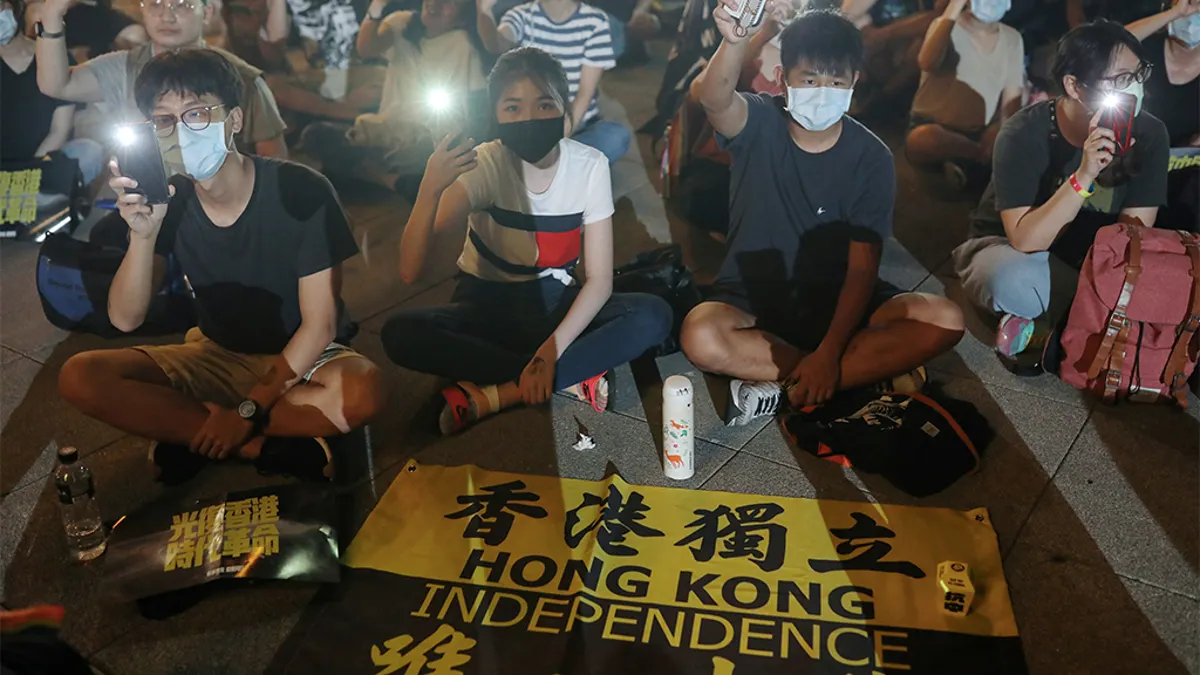Gordon Chang: National security law allows China to do whatever it wants in Hong Kong
Fox News Asia analyst Gordon Chang weighs in on ‘Sunday Morning Futures.’
The passage of a national security law on Hong Kong has put Taiwan on edge, with pro-democracy activists fearing that Beijing will soon have the self-ruled island in its crosshairs.
China and Taiwan’s relationship has remained tense for decades. But Beijing has taken an especially hard-line approach with Taiwan, since the 2016 election of President Tsai Ing-wen, who views Taiwan as an independent nation and not part of “one China.”
Consequently, many Taiwanese remain dubious of China’s promise that Taiwan could have the “One Country, Two Systems” model that was promised to Hong Kong after it gained independence in 1997.

Supporters of Hong Kong anti-government movement gather at Liberty Square, to mark the one-year anniversary of the start of the protests in Hong Kong, in Taipei, Taiwan, June 13, 2020. (Reuters)
"The law makes me dislike China even more," Sylvia Chang, an 18-year-old National Taiwan University student, told the AFP. "They had promised 50 years unchanged for Hong Kong but they are getting all the more heavy-handed... I am worried Hong Kong today could be Taiwan tomorrow."
According to AFP, polls consistently show a growing percentage of people who identify as “Taiwanese” rather than “Taiwanese-Chinese” or “Chinese.” A recent poll shows nearly 70 percent identify as “Taiwanese” -- a significant jump from just 18 percent in the early 1990s.
Weng Peng, a magazine editor who is supportive of pro-democracy protests in Hong Kong, said she will avoid visiting the country.
"The national security law makes me wonder how far would China go. Right now I don't see a bottom line and there's probably none. I think it's possible they will target Taiwan next," she said.
HONG KONG LEADER CLAIMS NEW NATIONAL SECURITY LAW IS NOT ‘DOOM AND GLOOM’ DESPITE TIKTOK PULLING OUT
The national security law for Hong Kong gives police sweeping authority to take actions, including conducting searches without a warrant, restricting suspects from leaving the city and intercepting communications.
Hong Kong's government on Monday night issued the details of Article 43 in the city's national security law, which outlines the measures that the police force can take to implement the legislation in the city.
CLICK HERE TO GET THE FOX NEWS APP
According to the rules, the police may be authorized to conduct searches for evidence without a warrant in "exceptional circumstances." Police may also apply for a warrant that requires a person suspected of violating the national security law to surrender their travel documents, thus restricting them from leaving Hong Kong.
The Associated Press contributed to this report.









































